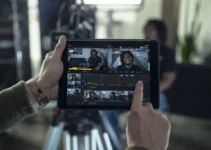Are enforcement cameras unconstitutional? The use of surveillance cameras for law enforcement purposes has sparked debates over privacy and civil liberties.
While these cameras are often implemented to enhance public safety and reduce crime, concerns arise regarding the potential violation of constitutional rights, particularly the Fourth Amendment, which protects citizens from unreasonable searches and seizures.
Critics argue that widespread surveillance could lead to an erosion of privacy, while proponents contend that such measures are necessary for maintaining security.
This tension between security and privacy highlights the ongoing debate surrounding the constitutionality of enforcement cameras.
Here are cops required to have body camera on?
Are enforcement cameras unconstitutional?
Enforcement cameras are not inherently unconstitutional, but their use must comply with constitutional protections, particularly the Fourth Amendment.
This amendment safeguards individuals from unreasonable searches and seizures, which can be challenged if surveillance is overly intrusive.
Courts often assess whether cameras are used in public spaces where there is no expectation of privacy or in private areas where consent or a warrant might be required.
When cameras are deployed appropriately, such as for public safety in public spaces, they are generally deemed constitutional. However, excessive surveillance or misuse may raise concerns about privacy violations and constitutional rights.
What are enforcement cameras?
Enforcement cameras are devices used by law enforcement agencies to monitor public spaces and enforce laws, primarily for traffic violations, public safety, and crime prevention. These cameras include red-light cameras, speed cameras, and surveillance cameras placed in strategic locations.
They automatically capture images or videos of vehicles or individuals engaged in illegal activities, such as running a red light or speeding, and generate evidence for fines or criminal charges.
The goal of enforcement cameras is to deter unlawful behavior, enhance public safety, and assist law enforcement in monitoring and responding to incidents in real-time or through recorded footage.
Enforcement cameras Law by country
Do you have to pay speeding camera tickets in Iowa?
Here’s a table explaining the process of paying speeding camera tickets in Iowa:
| Aspect | Details |
|---|---|
| Ticket Issuance | Speeding camera tickets are issued when a vehicle exceeds the speed limit, often in construction zones or high-risk areas. |
| Payment Requirement | Yes, you are required to pay the fine specified in the ticket. |
| Amount of Fine | The fine amount varies depending on the location and the severity of the violation. |
| Failure to Pay | If you fail to pay the fine, you may face additional penalties, such as increased fines, hold on vehicle registration, or a potential impact on your driving record. |
| Contest the Ticket | You may be able to contest the ticket in court or through an administrative process, depending on the jurisdiction. |
| Ticket Information | The citation will include details such as date, time, speed, and location of the violation, along with payment instructions. |
| Consequences for Non-Payment | Non-payment could lead to further legal actions, including a possible court appearance or increased fines. |
Do you have to pay camera tickets in California?
Yes, if you receive a camera-issued ticket in California, you are required to pay the fine unless you contest it successfully.
These tickets are typically issued for traffic violations, such as running a red light or speeding, detected by automated cameras. The ticket will include details like the date, time, violation type, and an image of the vehicle involved.
California law allows you to either pay the fine or contest the ticket.
If you choose to pay, the payment instructions will be provided on the ticket, and the fine must be paid by the due date to avoid additional penalties. If you believe the ticket was issued in error, you can challenge it by requesting a hearing. Failure to pay the ticket could lead to consequences such as increased fines, a hold on vehicle registration, or further legal action.
Do you have to pay speeding camera tickets in New Mexico?
Yes, if you receive a speeding ticket from a camera in New Mexico, you are required to pay the fine, unless you choose to contest it. Speeding cameras are often used in areas with high traffic violations, such as school zones or construction zones, to monitor and enforce speed limits. The ticket will typically include details such as the time, location, and speed at which you were recorded, along with an image of your vehicle.
Here, how to scale and crop camera on OBS?
You can pay the fine online, by mail, or in person, following the instructions on the ticket. Failure to pay the fine on time can result in additional penalties, such as late fees, a hold on vehicle registration, or even a warrant for your arrest in extreme cases. However, if you believe the ticket was issued in error, you can contest it by requesting a hearing or appealing through the proper legal channels.
Can you ignore traffic camera tickets in Los Angeles?
No, you should not ignore traffic camera tickets in Los Angeles. Ignoring a ticket can lead to serious consequences. Traffic camera tickets are issued for violations like running red lights or speeding, and they include photographic evidence of the infraction. If you receive one, you are legally required to either pay the fine or contest the ticket by the due date.
Failure to pay can result in increased fines, a hold on your vehicle registration, and possible legal action. In some cases, the city may send the ticket to a collection agency if it remains unpaid. Additionally, ignoring the ticket could lead to a bench warrant for your arrest in more severe situations.
If you believe the ticket was issued in error, you can challenge it by requesting a hearing. It’s important to follow the instructions on the ticket to avoid further penalties or complications.
Under the Constitution, is it legal for red light cameras or other traffic cameras to take pictures of you?
Under the U.S. Constitution, it is generally legal for red light cameras and other traffic cameras to take pictures of you, as long as they comply with certain constitutional protections.
The Fourth Amendment protects against unreasonable searches and seizures, but courts have ruled that using cameras in public spaces, where there is no reasonable expectation of privacy, does not violate this right.
Traffic cameras are typically used in public areas, such as intersections, where people are already in plain view, and their use is considered a form of automated law enforcement.
However, challenges to the use of these cameras may arise if the cameras are used in ways that could be deemed overly intrusive or not properly regulated.
The key issue often revolves around due process, ensuring that drivers have a fair chance to contest any citations issued by camera systems. Overall, while legal, the deployment of traffic cameras must adhere to local laws and regulations.
Law of Enforcement cameras unconstitutional
Here’s a table explaining the potential unconstitutionality of enforcement cameras:
| Aspect | Explanation |
|---|---|
| Fourth Amendment Protection | The Fourth Amendment protects against unreasonable searches and seizures, which is central to debates over camera use. |
| Public vs. Private Spaces | Cameras in public areas where there is no expectation of privacy are generally considered constitutional. |
| Intrusiveness | Concerns arise if cameras are used excessively or in private spaces without proper legal justification or consent. |
| Due Process | Legal challenges may occur if the system for issuing and contesting citations is not fair or transparent. |
| Court Rulings | Courts have ruled that cameras can be constitutional if they are used for public safety and follow due process. |
| Privacy Concerns | Some argue that constant surveillance may infringe on personal privacy rights, particularly in areas not properly regulated. |
| State-Specific Laws | The constitutionality can vary depending on state laws, regulations, and how cameras are implemented. |
Related faq’s
U.S. supreme court ruling on red light cameras
The U.S. Supreme Court has not directly ruled on the constitutionality of red light cameras, but lower courts have addressed the issue.
Here, how to get the SD CARD out of the camera?
Generally, the use of red light cameras has been upheld, as they are considered a form of automated law enforcement in public spaces where there is no reasonable expectation of privacy.
The Fourth Amendment’s protection against unreasonable searches does not apply because there is no physical intrusion, and cameras capture violations in plain view. However, challenges often center on due process rights, such as the ability to contest tickets and the fairness of the automated system.
States where red light cameras are illegal
In the United States, several states have made red light cameras illegal due to concerns over privacy, fairness, and due process.
These states include Alaska, Arkansas, Maine, Mississippi, Montana, Nevada, New Hampshire, and South Dakota. In these states, red light cameras are banned either by law or through court rulings that deem them unconstitutional or overly intrusive.
Some states have passed laws requiring more stringent oversight of automated traffic enforcement systems, while others have entirely prohibited their use. The legality of red light cameras can vary within states, as local jurisdictions may have differing regulations.
NYC speed cameras unconstitutional
There have been legal challenges to New York City’s speed camera program, but as of now, the use of speed cameras in NYC has generally been upheld as constitutional.
The program aims to improve public safety by deterring speeding, especially in school zones. Opponents argue that the cameras violate due process rights or lack proper oversight.
However, courts have typically ruled that traffic cameras in public spaces do not violate the Fourth Amendment, as there is no reasonable expectation of privacy in those areas. Challenges often focus on the fairness of ticketing and the accuracy of the system, not its constitutionality.
Are speed cameras unconstitutional
Speed cameras are not inherently unconstitutional, as long as they comply with constitutional protections.
The Fourth Amendment protects against unreasonable searches and seizures, but courts have generally ruled that speed cameras do not violate this right because they monitor public spaces where there is no expectation of privacy. However, concerns can arise regarding due process, especially in how tickets are issued and contested.
If a speed camera system lacks transparency or the ability to challenge violations fairly, it could raise constitutional issues. Overall, speed cameras are considered legal when used appropriately for public safety and in accordance with local laws.
US Supreme Court ruling on traffic cameras
The U.S. Supreme Court has not directly ruled on the constitutionality of traffic cameras, including red light and speed cameras.
However, lower courts have generally upheld their use, finding that automated cameras in public spaces do not violate the Fourth Amendment’s protection against unreasonable searches. These cameras are seen as non-intrusive since they capture violations in public areas where there is no reasonable expectation of privacy. Legal challenges often focus on due process concerns, such as whether individuals have adequate means to contest violations.
Thus, while not directly addressed by the Supreme Court, traffic cameras remain largely constitutional under current rulings.
Are red light cameras constitutional
Red light cameras are generally considered constitutional by courts, as they are used in public spaces where there is no reasonable expectation of privacy, aligning with the Fourth Amendment.
These cameras are seen as a form of automated law enforcement, capturing violations in plain view.
However, legal challenges often focus on due process concerns, such as whether individuals have fair opportunities to contest tickets.
While some states and localities have banned or restricted their use, most courts have upheld red light cameras as long as they follow proper procedures, ensuring transparency and the right to challenge citations.
Red light camera tickets unconstitutional
Red light camera tickets are generally not considered unconstitutional. Courts have upheld their use, arguing that cameras in public spaces do not violate the Fourth Amendment’s protection against unreasonable searches, as there is no expectation of privacy in those areas.
Here, how to get backup camera out?
However, legal challenges may arise over due process concerns, particularly regarding the ability to contest the tickets. Critics argue that automated ticketing systems may not provide enough transparency or opportunities for drivers to dispute violations.
Despite these challenges, red light camera tickets have largely been found constitutional when used for public safety and following legal procedures.
Red light cameras should be illegal
Red light cameras should be illegal because they undermine due process and often lack transparency.
Drivers who receive tickets through automated systems may not have an easy or fair way to contest them, leading to potential misuse and unfair fines.
The technology can be inaccurate, misidentifying vehicles or capturing images in unclear circumstances. Additionally, red light cameras are often seen as revenue-generating tools rather than genuine safety measures.
They can disproportionately target low-income drivers and create a profit-driven incentive rather than focusing solely on public safety, making them an unjust method of enforcement.




